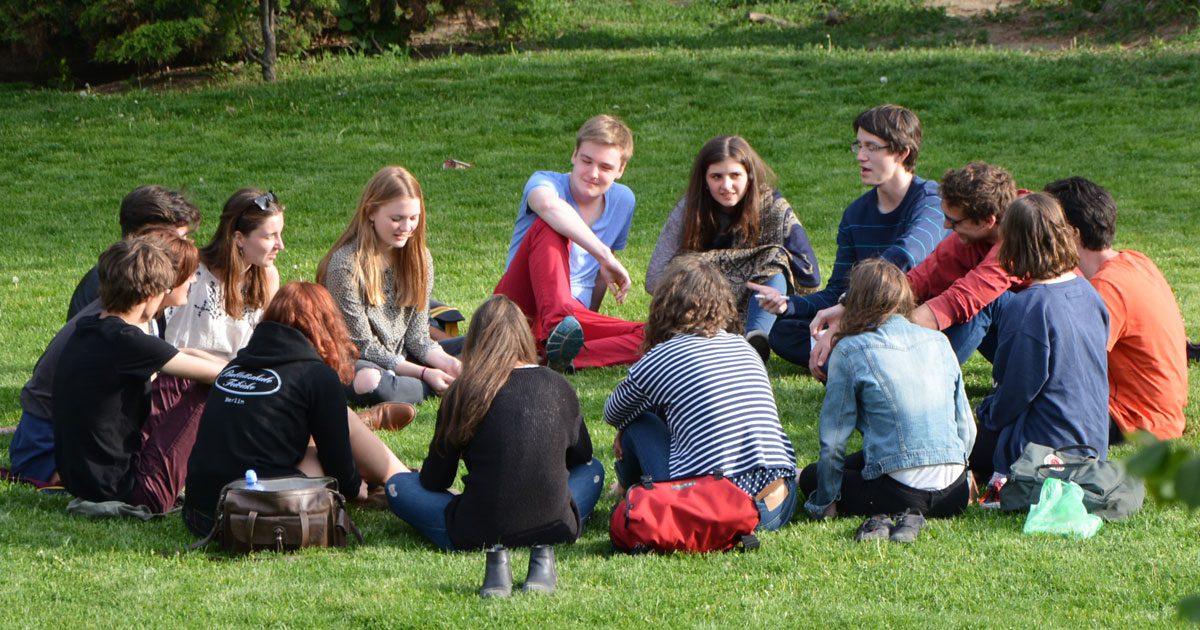We've noticed all the makings of "community" within the hundreds of business owners and managers who are clients (and friends) of Talked About Marketing, which has our reflecting on why humans need to belong to a community.
You'll be hearing more from us on this topic but in the meantime, here is some thinking that David Olney's been doing on the topic, that's very pertinent for marketers to consider.
While a group has common interests, a community shares the common value of wanting to improve the well-being of its members.
The above sentence is a summary of the results of three weeks of reading and thinking.
I started off by reading Mark Schaefer’s new book, Belonging to the Brand, which was very useful for work (you will see the concepts from this book being implemented at Talked About Marketing), but, at a broader level, the book motivated me to ask more questions about the nature and value of community than it could ever have answered. Consequently, I went on a quick deep dive to understand the history and application of concepts to create successful community, through which I discovered Owen Eastwood’s book, Belonging, and Charles Vogl’s book, The Art of Community. There are several other books you could read, but I would suggest starting with these.
Imagine that you are excited to go to an event at which you will meet lots of new people who you have something in common with (it doesn’t matter if it is a professional group that relates to your work, or a social group that relates to a cherished hobby/interest). You are excited to talk to people who share your interest, to learn something new, and to connect with some people and (maybe) make a new friend.
On your way home from the event, you are glad that you got to speak with people who share your interest, and you learned something new, but you have a gnawing sense of dissatisfaction that you didn’t really connect with any of the people you chatted with at the event.
There are a number of reasons why you might not have connected with the people at the event, but for the sake of significance (and because this is only going to be a short blog post), I’m only going to discuss the most crucial factor: you just spent time with a group, not in a community.
While a group has common interests, a community shares the common value of wanting to improve the well-being of its members.
We cannot expect to be granted instant access to a community that cares about its members’ well-being, but we can tell when we are in the presence of a community that behaves this way, or when we are merely in a group with common professional or social interests.
Even before the COVID-19 pandemic, it was becoming clear that people were craving satisfying connection, and now there is an avalanche of literature about the importance of belonging, as well as an epidemic of loneliness.
When is a community not a community? When it is a group.
We need community, and, more often than not, what is available to us is merely a group.
For example, during my years as an academic, the people I shared an office with were a community (The Knights of the Spelunking Hord – Napier Building 417, while the mass of people outside of our office were a group. During my years as an academic I experienced very few communities, tried to build some community for my students, and normally came home from organised academic functions with a gnawing sense of dissatisfaction.
As a consultant, I have worked with some amazing and very successful communities, helped some enlightened groups to work toward becoming communities, and struggled to have more than a small and temporary impact on groups who won’t accept that they need to become communities.
And now, as a Strategic Communication professional, I am already impressed by how many small businesses are communities, or want to become a community.
In the social context, I think a majority of the events I have ever been to involved groups, and these groups struggle to keep members. In contrast, the social communities I am a part of have kept on going, and the turn -over of people has been low.
Why do we need to belong to a community?
Community helps us to work out who we are, how we should behave, and provides us with the certainty and security of belonging that we need. Community requires that you leave a little bit of individualism at the door, and ensures that you feel welcome when you step through the door. Community can be developed to help us get what we want, while massively increasing the likelihood that we will get what we need.
Without a community, we have to develop the discipline to do everything on our own, and to work out what to do without people who care to guide and support us. There are plenty of books written by alphas that suggest that striving in isolation is a perfectly reasonable thing to do, but, in contrast, I contend that it is a ridiculous thing to do, if you can more easily and successfully put effort into joining and/or supporting a community.
We can do important things on our own, and sometimes we have to, but we should appreciate that community makes life and achievements better, and we should strive to contribute to communities that care about improving well-being.

